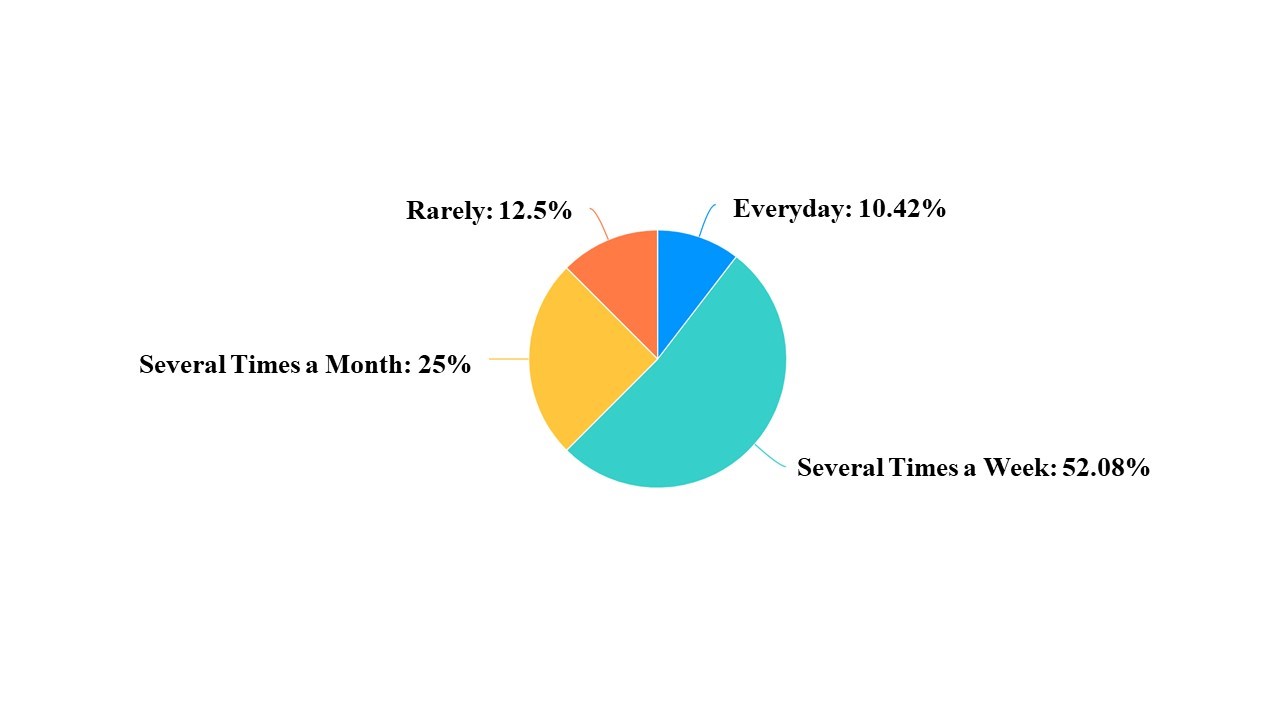

Volume 74
Published on December 2024Volume title: Proceedings of ICILLP 2024 Workshop: Today's College Students and Faculty: How AI is Transforming Their Behaviors, Legally
This study analyzes the potential and challenges of introducing affective AI technologies to promote remote education. The growing popularity of remote learning highlights the significant upside of affective AI in real-time emotional monitoring and feedback, especially for improving learning motivation, optimizing personalized educational paths, and supporting students' mental health. This study explores the particular applications of affective AI technologies and the ethical and privacy concerns they present. The research indicates that affective AI technology, based on the principles of affective computing, may strengthen students' emotional management abilities, improve the overall educational experience by identifying their emotional states in real time, and create more possibilities for teacher-student interactions. Affective AI enhances student motivation and optimizes personalized learning paths in remote education, especially for fostering positive emotional regulation and mental health support outcomes. However, affective AI encounters challenge related to technical prejudice, privacy protection, ethical fairness, and user acceptance in extensive applications, particularly notable disparities in multicultural contexts, which require solutions through privacy safeguards, algorithm refinement, and culturally adaptive design. This study is significant as it systematically reveals the potential of affective AI technologies in remote learning, identifies their critical challenges, and offers valuable recommendations and references for future advancement in global education.

 View pdf
View pdf


This paper delves into the integral role of game-based learning (GBL) in advancing English as a Second Language (ESL) education, scrutinised through three distinct lenses: theoretical foundations from an affordance perspective, critical evaluation of traditional and gamified methodologies, and the demonstrable superiority of fully integrated GBL frameworks. The first section explores affordance theory, emphasising how GBL leverages affordances such as contextual engagement, adaptivity, and instructional scaffolding to surpass conventional educational approaches. This section also adopts the Theory of Change framework to conclude that GBL offers significant long-term cognitive and motivational benefits for ESL learning. Subsequently, the analysis identifies shortcomings in existing ESL resources, such as textbooks and digital applications, which fail to sustain genuine linguistic proficiency and engagement. By comparing the gamified product with the GBL experience, the advantage of later in ESL learning is further conveyed. The final section presents a case study of Language Valley, a purpose-built game that rectifies these deficiencies. It illustrates how immersive, narrative-centric GBL environments significantly bolster cognitive development, motivational dynamics, and practical language application in an ESL learning context. The paper posits that GBL, focusing on interactive and applicable learning experiences, offers transformative potential in ESL settings, fostering profound and enduring educational outcomes.

 View pdf
View pdf



The use of Artificial Intelligence (AI) tools to assist English learning has increasingly become a trend in recent years. These AI-generating tools are favored by college students for their speed, wide range, and small spatial limitations. However, behind the reliance on the use of these tools, it also means that students are presented with new challenges. For this reason, this study aims to explore the current situation of using AI tools to assist English learning among college students at Guangdong University of Education. By means of interviews and questionnaires, this study concludes that in order to stand out academically, college students can generate their own answers by referring to the answers given by AI-generated tools and combining them with their own unique ideas; moreover, all external warnings and interventions on the use of AI for academic cheating are only secondary to the fact that the college students themselves are the key to change, and need to themselves recognize the importance of the behavior.

 View pdf
View pdf


This paper aims to discuss the impact of virtual gallery-assisted learning on the learning interests of middle school students interested in art. With the rapid development of science and technology, virtual reality, an emerging tool for assisted learning, has become a highly regarded new approach in art education. This study examines how virtual galleries can effectively enhance art education for middle school students through their extensive visual resources and interactive features, significantly improving students' engagement, creativity, and critical thinking. By deeply analyzing the virtual gallery's art enrichment learning resources for middle school students and the different learning methods from the traditional classroom, this study explains the effectiveness of virtual gallery tools and resources in promoting art appreciation and art skill development among middle school students. It also evaluates its great potential in actual teaching practice and its impact on students' engagement and creativity. It provides new thinking about teaching and learning for middle schools' art education and a reference for promoting art education towards more diversified development.

 View pdf
View pdf


With the development of new technology, augmented reality (AR) technology is revolutionizing the educational landscape, particularly in geometry. This innovative approach deepens their comprehension of geometric principles and stimulates their motivation to learn. This paper aims to provide a comprehensive introduction to AR’s application in the educational field, especially the topic of geometry, and evaluate its effectiveness in improving users in two aspects: motivation and academic results. The study applies the Attention, Relevance, Confidence, and Satisfaction (ARCS) Model to assess the impact of AR in education compared to traditional teaching. It finds that AR boosts student motivation, especially for those with lower academic performance. While AR enhances learning experiences, its effect on improving grades is not immediate. The method that is mainly utilized in this study is reviewing the literature, summarizing, and analyzing critical information from them. And it turns out that short-term grade improvements are not significantly observable, AR technology offers long-term benefits by enhancing engagement and conceptual comprehension through interactive and spatial visualizations.

 View pdf
View pdf


In the wave of generative artificial intelligence (GenAI) applications in education, the current status and attitude of primary school teachers towards the use of GenAI have not yet been fully studied. This study surveyed 78 primary school teachers through an online questionnaire to reveal their understanding level of GneAI, the usage of GenAI, their views on GenAI applied in education, and expectations for future applications of GenAI. The results show that most teachers have some understanding of AI, but less knowledge of GenAI. Despite this, almost all teachers agree that GenAI plays a positive role in assisting teacher teaching and promoting student learning, and they hold an optimistic attitude towards its application prospects. There are differences in the degree of use of GenAI by teachers of different ages and young teachers are more inclined to use AI. Teachers of different identities have different preferences for the content of GenAI-assisted work. Liberal arts and science teachers prefer intelligent search and intelligent homework correction, while art and physical education teachers and middle and senior teachers prefer personalized teaching and personalized assessment. Finally, the author recommends relevant departments strengthen the use of AI in primary education, develop practical teaching and assessment systems, and paying attention to the resource management and protection.

 View pdf
View pdf


The way augmented reality (AR) is transforming our understanding of plants is examined in this essay. AR brings a new method to make students learn happily and easily. It helps them have a better knowledge about different plants. The essay talks about how AR helps students remember things better. It also allows them to learn by doing, not just reading. This can make students want to keep learning about plants even after class. Using AR in the classroom has certain drawbacks. Sometimes, the technology doesn't work well. It can also cost a lot of money. Some people worry about how it might change the way teachers teach. Under these circumstances, augmented reality (AR) could be helpful for learning about plants and other subjects. As a result, students may become more engaged and improve their comprehension. However, the way teachers use it may determine how well it functions.

 View pdf
View pdf


Using digital games for game-based learning provides great potential for language learning. However, game-based learning differs from gamification, which teachers may be more familiar with, and it presents numerous conceptual and technical challenges to current front-line teachers, who are considered essential for the success of any technology integration project in schools. It is undeniable that the implementation and effectiveness of game-based learning significantly relies on the willingness of classroom teachers to embrace it. Therefore, this article explores front-line teachers’ understanding and attitudes toward using digital games for game-based learning and its application in teaching. 4 front-line teachers from the primary, middle and high school levels in China participated in this qualitative study. Data for the study were gathered through semi-structured interviews and subsequently analyzed using thematic and content analysis. According to the findings of the study, the participating teachers showed negative attitudes towards using digital games for language learning purposes, and almost all participants had difficulty distinguishing between game-based learning and gamification; In addition, all participating teachers showed their limited ability in using game-based learning strategies as educational support in teaching. This research aims to enhance the understanding of English teachers’ perceptions and attitudes toward using digital games for game-based learning in the Chinese context, potentially leading to constructive recommendations for educational authorities. Moreover, relevant teaching resources, including teacher training programs, can be further tailored to meet the specific needs of educators.

 View pdf
View pdf



Mathematics was regarded as a fundamental subject and plays a critical role in students' cognitive development and future career prospects in STEM fields. However, due to the abstract nature of mathematics and the extensive practice required, students often find it monotonous and challenging. Thus, games have become an urgent need to stimulate students’ interest, maintain long-term engagement, and promote effective math learning. This study analyzes the types of math games and the features and effects of games for math learning, it was concluded that games for math classrooms should primarily consist of tabletop analog games that are simple and easy to integrate into learning segments. Long-time, exploratory digital games are not recommended for classrooms. For out-of-class math practice, context-based role-playing games are preferable to foster students' long-term motivation for training. Then this study proposes a design model that combines digital and analog games to promote math learning both in-class and outclass based on learning science, a case was designed to show the application of the model and development of game-based learning in mathematics education.

 View pdf
View pdf



With the rapid development of natural language processing (NLP) and computer vision technology, the technology of artificial intelligence creative generation (AIGC) has achieved automated conversion from text to video. However, it is still uncertain whether these technologies can provide a deeper understanding of the concept images in Chinese poetries while the videos are generated more efficiently and conveniently. This study analyzes 9 AlGC software based on 8 evaluation dimensions, involving the representative domestic software Aibrm and PIKA with high popularity from aboard. The authors designed a questionnaire survey of the matching rate between poem videos generated by AICG and poem concept images, in terms of Chinese teachers. Also, researchers explore the concretization of abstract concepts in AlGC software. The research found that there are differences in the understanding of concept images of Chinese poetries by different AIGC tools. More than 50% of respondents prefer poetry videos generated by Aibrm, but some believe that both videos do not match poetic concept images. This is mainly due to stiff roles and contexts, insufficient integration, lack of video coherence, and insufficient emotional communication. Despite the development of the AICG, the understanding of poetic concept images should be identified well and improved more. The application of the Chinese poem concept, emotional expression, and cultural integration still requires continuous exploration.

 View pdf
View pdf




